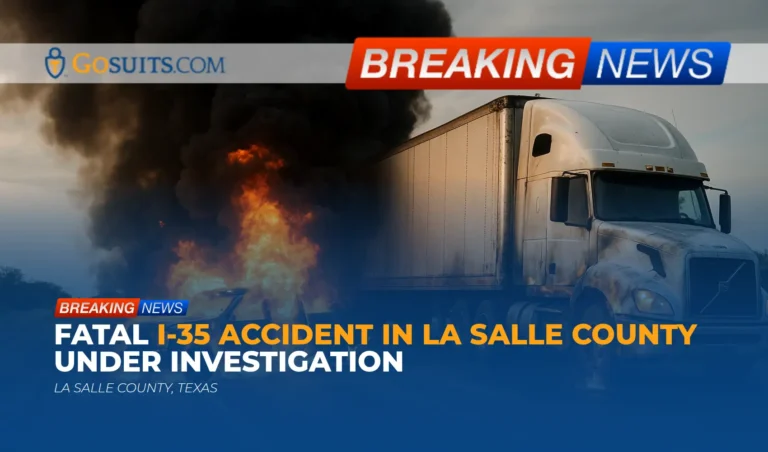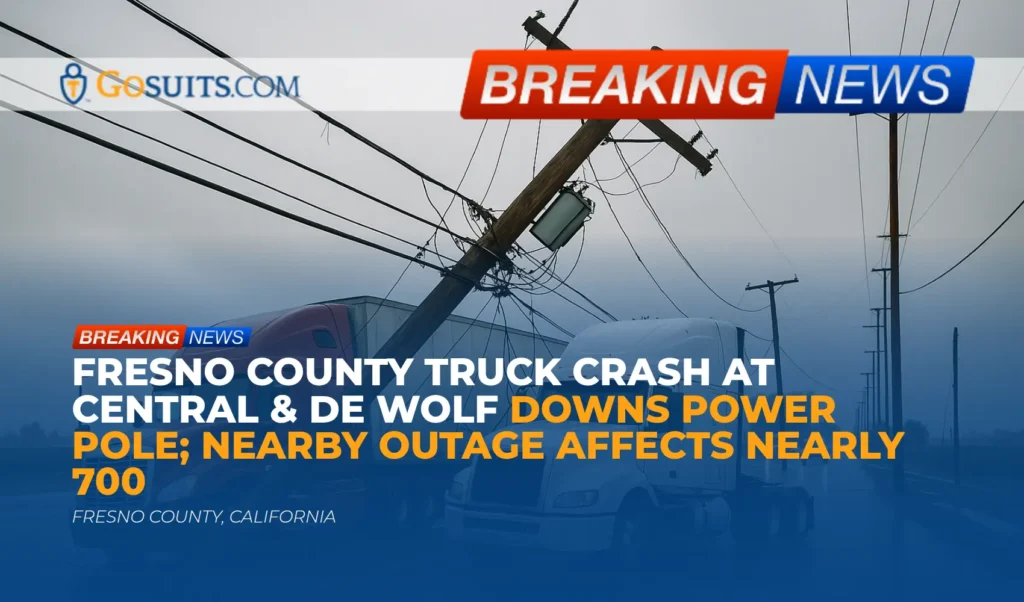A tragic accident on Interstate 35 in La Salle County, Texas, has resulted in at least one fatality and significant traffic disruptions. The Texas Department of Public Safety (DPS) reported the incident, which involved a tractor-trailer and a pickup truck, occurred on Monday, September 22, near mile marker 55.
Incident Overview
According to the DPS report, authorities received calls at approximately 3:52 p.m. regarding a potential fatal crash. Upon arrival, La Salle County deputies discovered a white Ford pickup truck fully engulfed in flames. A tractor-trailer was also partially on fire. Initial investigations suggest the pickup truck rear-ended the trailer while both vehicles were traveling northbound on I-35. The cause of the collision remains under investigation.
Due to the extensive fire damage, the exact number of occupants in the pickup truck is currently unknown. The driver of the tractor-trailer sustained minor injuries.
Traffic Impact
The accident has led to the closure of both northbound and southbound lanes of I-35. Northbound lanes are closed at mile marker 48, while southbound lanes are closed at mile marker 56. Traffic is being diverted to the west and east access roadways, causing significant delays in the area.
Potential Legal and Safety Implications
Accidents involving large commercial vehicles like tractor-trailers often result in severe consequences due to the size and weight disparity between the vehicles. While the investigation is ongoing, several factors could potentially contribute to the cause of the accident and subsequent legal considerations.
Liability and Negligence
In personal injury cases arising from car accidents, determining liability is crucial. If the pickup truck driver was determined to be at fault, factors such as distracted driving, speeding, or impairment could be contributing factors. The investigation will likely examine these possibilities.
Conversely, even in rear-end collisions, the driver of the lead vehicle (in this case, the tractor-trailer) could bear some responsibility if, for example, they were driving with faulty equipment, improperly parked, or otherwise negligent.

Importance of Evidence Preservation
In the aftermath of such a severe accident, preserving evidence is paramount. This includes collecting data from the vehicles’ event data recorders (EDRs), interviewing witnesses, and thoroughly documenting the scene. The DPS’s investigation will play a vital role in gathering this information.
Insurance Coverage
Multiple insurance policies may come into play in this scenario. The pickup truck driver’s insurance, the trucking company’s insurance, and potentially umbrella policies could all be relevant. Navigating these policies and understanding coverage limits can be complex, requiring the assistance of seasoned legal counsel.
Wrongful Death Claims
In the tragic event of a fatality, the deceased’s family may have grounds to file a wrongful death claim. This type of claim seeks to compensate the family for their loss, including funeral expenses, lost income, and emotional distress.
Addressing Safety Concerns on I-35
I-35 is a major transportation corridor, and accidents like this highlight the importance of safe driving practices. Drivers are urged to maintain a safe following distance, avoid distractions, and obey all traffic laws. Additionally, regular vehicle maintenance is essential to ensure that vehicles are operating safely.
This accident serves as a sobering reminder of the potential dangers of highway driving and the importance of prioritizing safety at all times.

Commentary from Gosuits La Salle County, Texas Personal Injury Attorney
The circumstances surrounding this accident are undeniably tragic, and our hearts go out to all those affected. Accidents involving tractor-trailers are inherently complex, often involving intricate legal and factual considerations. From a personal injury perspective, a thorough investigation is paramount to determining the cause of the accident and identifying all potentially liable parties. Understanding the applicable state and federal regulations governing commercial trucking is also essential. This includes hours-of-service rules, vehicle maintenance requirements, and driver qualifications.






